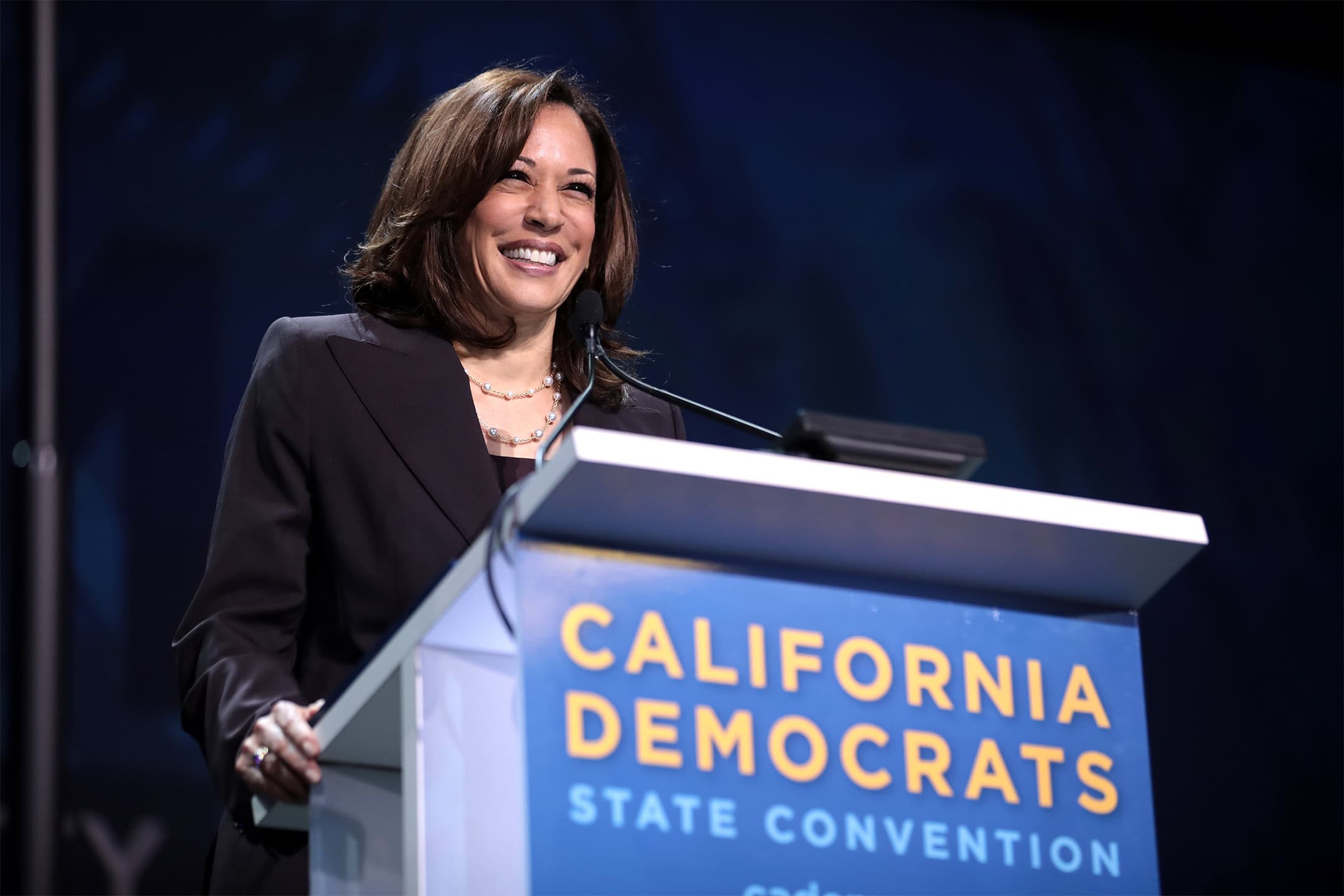July, 2024. Arguably, the month from hell for the US Democratic party. The debate between Joe Biden and Donald Trump made Richard Nixon’s erratic sweating in the 1960 presidential debate seem like Barack Obama’s fresh voice in 2008.
On July 21, Biden stepped down and endorsed Kamala Harris, his vice-president, to take up the fight for the presidency. Harris quickly had the Democratic party united around her, raising 81 million USD within 24 hours of announcing her campaign as she promised a new direction from the Trump-Biden combo. As of September 7, polling shows Harris at a three-point advantage of defeating Trump, which I feel is significant given the seemingly inescapable hole that Biden was in.
Crucially, there is a key demographic of voters that remains relatively undecided: young voters. In the 2020 US election, 65 per cent of voters under the age of 25 voted for Biden, 11 per cent higher than any other age group. However, I’m concerned the support for the Democratic candidate is declining in the polls. Around 50 per cent of young voters said they would vote for Harris, while 34 per cent indicated they would vote for Trump.
This is concerning because the young have traditionally voted Democrat. Furthermore, only 50 per cent of eligible young people voted in the last presidential election. Ultimately, young democrats who feel alienated by the party must remember the great stakes in this election.
The American economy
I believe the first reason for young voters’ alienation from the Democratic party is the economy. The US economy rebounded quite well from the COVID-19 pandemic. Growth was faster than projected. Over the four years, many of the 8.6 million occupation shifts resulted in better-paying jobs, and wages are keeping up with inflation. Yet, according to a Pew Research Center study, only 21 per cent of Democratic voters under 30 felt that the economy was doing well.
I think much of this misunderstanding comes down to communication. Anyone who watched the presidential debate could tell that Biden is not the communicator he once was. This contrasts with Trump, who has the ability to communicate what he wants about the economy — regardless of whether it is true.
However, I sense a reversal between the current presidential candidates. A poll from the Financial Times and the University of Michigan Ross School of Business found that Harris is more trusted than Trump with the economy, reversing a seven-point lead that Trump had on the same poll under Biden.
Israel-Palestine and a bi-partisan line
I believe another factor contributing to the growing distrust among young Democrats is the situation between Israel and Palestine. Another Pew Research Center study found that 33 per cent of those under the age of 30 identify as pro-Palestine while 14 per cent are pro-Israel. This sentiment from young voters contrasts with the American government’s political and economic support of Israel for the past 70 years.
However, Harris has made a clear commitment to a ceasefire while also maintaining Biden’s support for a two-state solution. While this may not seem like much, I believe this marks a careful diplomatic effort to bring an end to the war, including working behind the scenes between the two sides for peace negotiations.
If anything, I think young voters can learn a lot from this kind of diplomacy and moderation, not seeing issues in black and white but as evolving issues that require us to make compromises and change.
Balancing two sides
The theme of compromise can be further noted in her legal career, in which I would argue that her record as a prosecutor is relatively bi-partisan. While a more conservative voter may agree with the longer criminal sentences she pushed for, a liberal voter might admire her fight against capital punishment and her promotion of racial bias training in the OpenJustice initiative to track crime statistics in 2015.
Former Governor Tim Waltz, Harris’ running-mate, has a similar voting record that I think would further appeal to young liberals. One example is Waltz’s signing of a 2023 bill which created free meals for all school children in Minnesota. Yet, I suspect his charming middle-American patriotism makes him far more likely to win over Republicans who have since felt alienated by Trump.
The Trump factor
Finally, it is most important to keep in mind the threat being posed to democracy.
On 13 July, Trump survived a brush with death. Afterward, a rather powerful image of Trump rising from the ground with his fist out galvanized his lead over Biden at the time. Thus, while Harris currently maintains a lead in the race, it is clear that a Democratic win remains precarious and we need to maintain her campaign’s momentum.
While Trump has not officially endorsed Project 2025, essentially a ‘wishlist’ written by Republicans from Trump’s previous administration, his running mate JD Vance has praised the Project’s leader. This suggests a very unsettling future as the policies range from mass deportations to tariffs that I believe could tank the economy. Most worryingly, it removes checks and balances that ensure a separation of powers among the US government.
In my opinion, a second Trump presidency risks pushing America into authoritarianism, making this an election in which democracy is very much on the ballot. I believe that Kamala Harris aims to save democracy, but this can only happen if young people who share a love for democracy and freedom allow her to. Otherwise, fundamental freedoms are at risk.
Felix Hughes is a second-year student at Trinity College studying history and political science.



No comments to display.